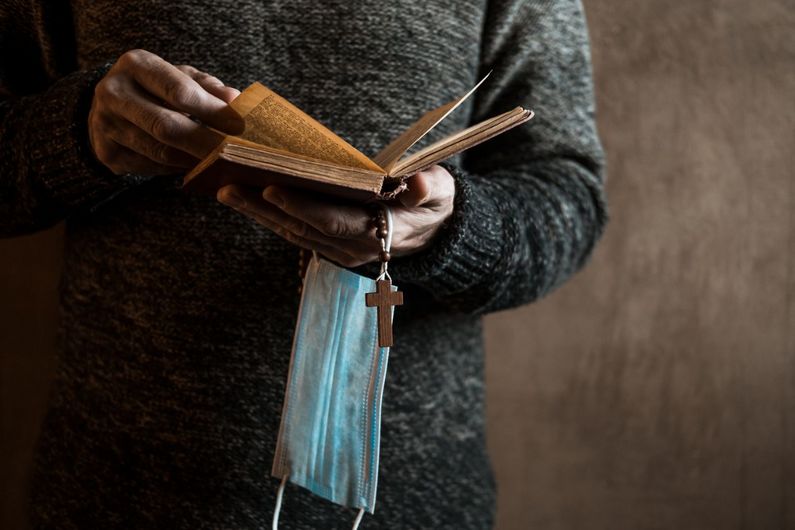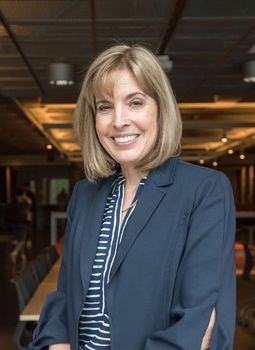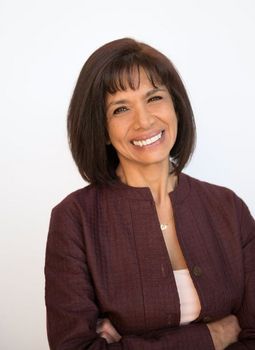Looking at the pandemic from a religious angle
- UdeMNouvelles
08/12/2024
An international symposium at UdeM explores the relationship between religion and COVID-19.
Tomorrow at the Carrefour des arts et des sciences, UdeM will host an international symposium on the intricate relationship between religion and the COVID-19. Organized by the Chaire en gestion de la diversité culturelle et religieuse (GDCR) and the Chaire de recherche France-Québec sur les enjeux contemporains de la liberté d'expression (COLIBEX), the event will bring together European and North American specialists, as well as representatives from civil society.
"The COVID-19 pandemic has severely tested the ideals of freedom and solidarity, cardinal values so dear to Western social democracies," said Solange Lefebvre, GDCR chairholder and co-holder of COLIBEX. "It has also highlighted the porous nature of relations between states and religious groups, as both attempt to manage the social and health crisis and unravel its existential dramas."
The pandemic sparked significant controversy, evidenced by a surge in conspiracy theories and the rise of social movements opposing vaccination and health measures. Religious organizations were not spared from these debates; new public-health measures also impacted religious practice and, more broadly, the care of elderly, vulnerable and socially isolated believers. These groups grappled with genuine existential and spiritual dramas, exacerbated by the temporary closure of their places of worship.
"A source of very real anxieties, the pandemic has led to the emergence of new sociabilities and unprecedented forms of religiosity in a context of social isolation and mistrust of institutions, not without tensions and reciprocal misunderstandings, in a secular context, " noted GDCR member Mathieu Colin.
"This international symposium is the first of its kind to take stock of the pandemic and address these issues from an interdisciplinary and comparative perspective," said Lefebvre. "It will bring together specialists from various disciplines and speakers from different backgrounds and countries, including Canada, the Republic of Ireland, the United Kingdom, Germany and Poland."
She highlights the key role played by the Recov-19 research consortium in these interdisciplinary and comparative reflections on the interactions between religions and the COVID-19 pandemic.
The symposium will also feature contributions from civil society actors who were at the forefront of the pandemic. Journalists who covered the health crisis - including André Picard, health columnist at The Globe and Mail; Luce Julien, news director of French-language services at CBC-Radio-Canada; and Éric-Pierre Champagne, journalist at La Presse and president of the Fédération professionnelle des journalistes du Québec - will share their insights.
Members of public, parapublic and community organizations will also share their perspectives. These include Bilkis Vissandjée, professor at UdeM's Faculty of Nursing; Yasmina Chouakri, executive director of the Réseau d'action pour l'égalité des femmes immigrées et racisées; and Geneviève Hébert, MNA for the riding of Saint-François and deputy whip of the Coaltion Avenir Québec government.
Finally, specialists from religious organizations will share their perspectives on the pandemic: Monsignor Pierre Murray, general secretary of the Assemblée des évêques catholiques du Québec; Peter Noteboom, secretary of the Canadian Council of Churches; Rick Hiemstra, director of research for the Evangelical Churches of Canada; Lisa Grushcow, rabbi at Temple Emanu-El-Beth Sholom; and Lyne Moreau, coordinator of the Catholic Diocese of Sherbrooke.
The event will be offered in a hybrid format, with simultaneous translation.
Media contact
-
Frédéric Barriault
Institut d’études religieuses, Université de Montréal
Tel: 514 970-2952















